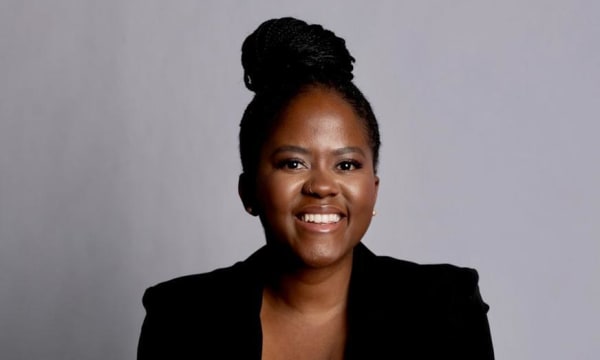The world is imploding, and the kids are alright! Okay, maybe not quite that, but the youths are definitely steering clear of the disillusionment Kool-Aid – but what does this mean? How are we seeing it play out IRL?
Firstly, that dusty-yellow marketing playbook? Your fireplace needs it more than you do this winter. This isn't your parents' demographic. Today’s youth aren’t just buying products; they’re investing in values that are all about the real thing.
Inside the Data
Brands have religiously operated on a simple premise: sell a good product, tell a good story. But a generation, forged in the crucible of constant information and relentless scrutiny, have upended the consumer contract. They demand more than a transaction; they demand a reflection of their own complex, often contradictory, reality.
Consider the data. The Gallup Global Flourishing Study, for all its academic rigour, whispers a truth long suspected: South African youth, scoring a mid-range 7.41 on the flourishing index, carry a profound sense of purpose. They know why they’re here. Yet, that purpose often collides with a stark happiness deficit and a brutal economic reality. They have the why, but the how – the pathways to enact that purpose, to find worthwhile work, to build a life – is often barricaded.
The New Consumer Contract
This is where the new consumer contract is being drawn. This generation, as Parusha Partab Chief Strategy Officer at VML astutely put it, “is anchored in real inclusion because it demands resilience, not retreat. Flying the flag in easy times but folding it in moments of tension reveals a truth: that if DEI work vanishes when it is challenged, it was never about inclusion, it was just smoke and mirrors.”
Performative gestures of past eras? The youth are actively rejecting these. They’re schooled in the arts of corporate virtue signalling – they’re not looking for a brand to tell them what to believe; they’re looking for a brand to align with their deeply held convictions.
Sanctuary for Freaks and Weirdoes
What does that alignment look like? Well, it's less campaign slick and more tangible action. The 2024 African Youth Survey (AYS) lays bare their priorities, and they are not subtle. Corruption, that insidious rot, is the top barrier to both employment and entrepreneurship for a staggering 94% of South African youth. They’re not just concerned; they’re incensed.
Speaking of entrepreneurship, the Mail & Guardian recently highlighted a powerful truth: South African youth are financially savvy, with a fierce entrepreneurial drive. However, AYS reveals a brutal counterpoint: the crushing lack of access to capital. Brands that truly empower by dismantling systemic barriers, will find not just customers, but invested advocates.
This generation understands that the internet didn't make us weird, it made us okay to show how weird we are. This gen is likely to be crying over a tortoise getting a prosthetic leg while scrolling past perfectly curated feeds. They are also acutely aware of the fake news epidemic, so brands prioritising truth and embracing the messy, diverse reality of their consumers will cut through the noise.
But let's not just talk theory. Let's talk unpack a brand that, against all conventional wisdom, seems to be getting it right.
Rick Owens. A name that might conjure images of the avant-garde and atypical. Yet, as Antonio Petra, Strategic Director at VML keenly observes, Owens has built a brand where "the margins are at the centre rather than the inverse." This isn't about selling clothes; it's about selling affirmation and inclusivity.
Owens, a man in his 60s, understands the digital generation's hunger for a "sanctuary for the freaks and weirdos" – a space where individuality is celebrated, not just tolerated. A few months ago for his SS25 show, Owens demonstrated this by deliberately sending diverse students down the runway in "multitudinous clusters of the same look". It wasn't a fashion statement; it was a profound message: "expressing our individuality is great, but sometimes we need to embrace our commonalities, especially in the face of the peak intolerance we are experiencing in the world."
Meaning in a World of Contradictions
This is the type of leaning into contradiction that resonates. Youth live in a world of stark contrasts – personal optimism amidst national pessimism, digital connection alongside fake news. Brands that acknowledge this duality, that "prod a little deeper" to understand the complex systems of meaning and value, rather than offering simplistic, airbrushed narratives, are the ones assembling unfeigned loyalty. They're affirming an identity, fostering a community, and are gutsy enough to make the margins matter.
And here’s a twist for the old guard: this generation is drinking less, and, surprisingly, becoming more religious. This isn't a return to tradition in the conventional sense – it's a search for meaning, for community, for something solid in a world that often feels adrift. It speaks to a profound individuality, a willingness to forge their own path, even if it defies easy categorisation. Understanding this nuanced search for identity, which offers spaces for genuine connection and self-expression, will resonate far deeper than those dated, tattered and dusty stereotypes.
Ultimately, loyalty for this generation isn't a given; it's hard-won with the willingness to get your hands dirty in the real world, not just the digital one.
Originally published in The Sunday Times YOUTH supplement.


